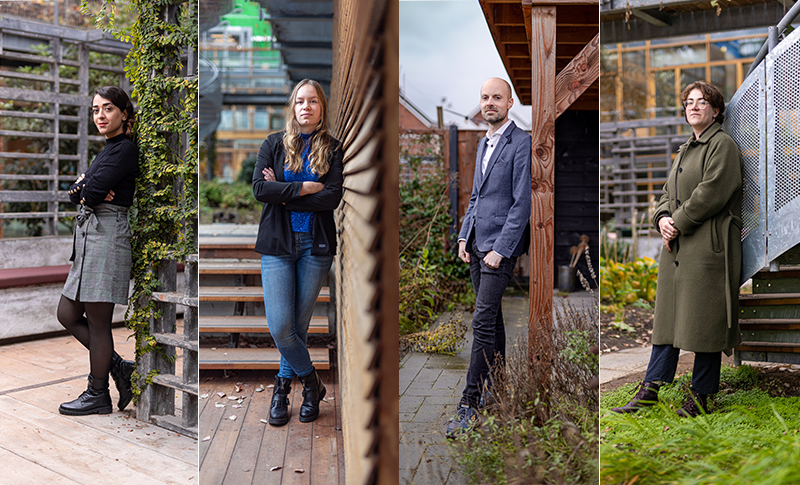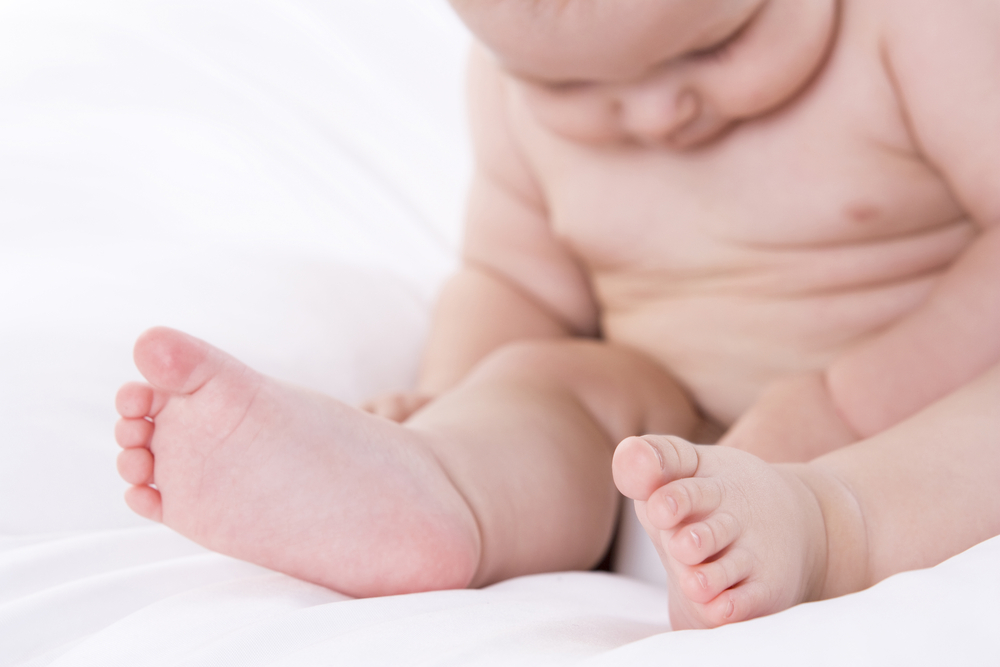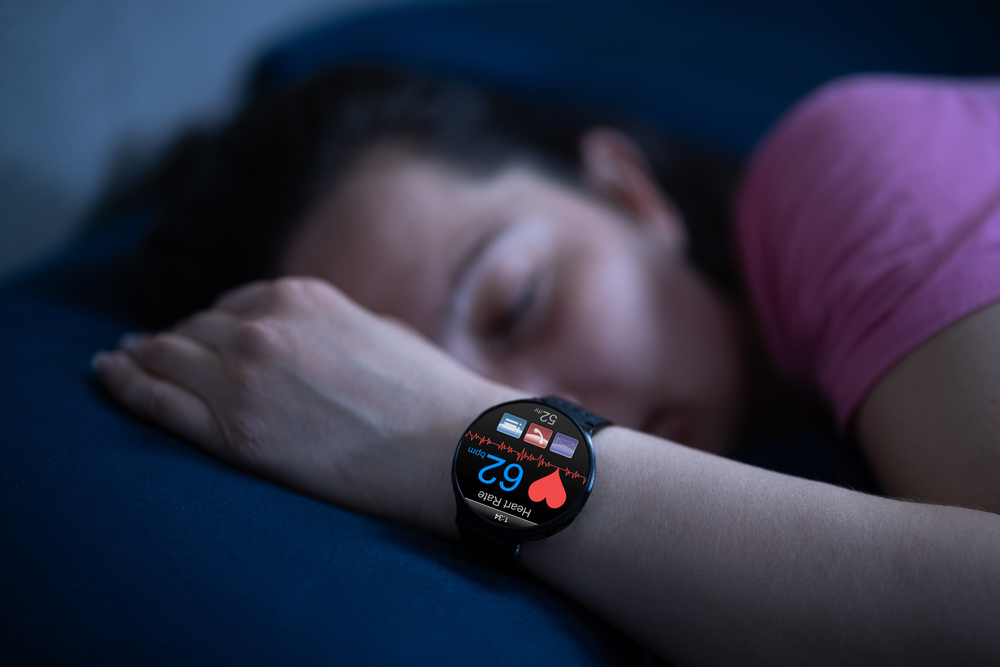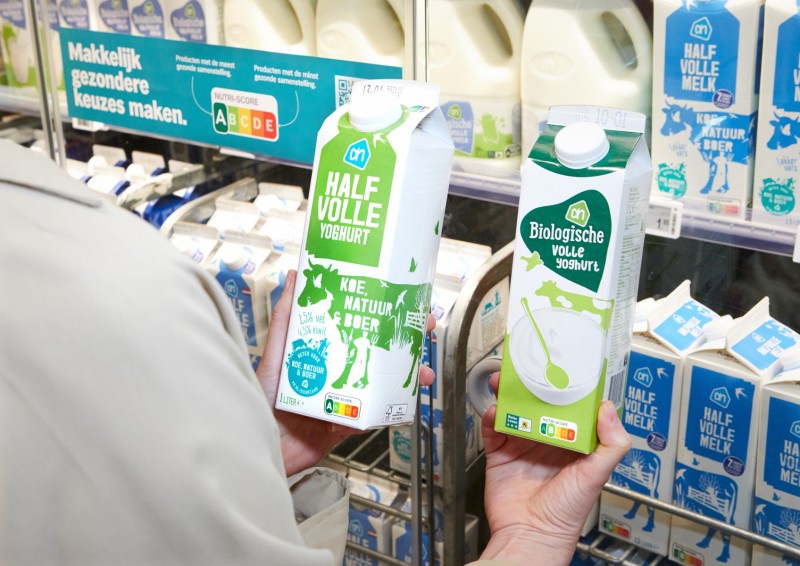The climate crisis, declining biodiversity, global conflicts — despite all the sombre news, we have to find a way of keeping going. These four gritty WUR people know better than anyone what that takes.
‘I feel guilty that I’m living in peace here’
Homa Esmaeli Sooderjani is a PhD student in the Farm Technology Group. While her home country of Iran is in turmoil, she is continuing the research for her PhD with help from her supervisor.
‘The protests in Iran started after the death of Mahsa Amini last September. She was an ordinary girl who was killed by the regime because she wasn’t wearing her headscarf the right way. Mahsa Amini became a symbol for so many women in Iran. There are no human rights without women’s rights.’
‘The past few months have been difficult. Physically I am here, but in my head I’m thinking about the people who are sacrificing their lives for a better future.
If feeling sad made me do badly in my work I’d feel even worse
What can I do to make an impact? I go to protests and tell people about what’s going on in Iran. At the same time, I feel guilty that I’m living here in peace while back home people are being killed. Because of the protests, the Iranian community in Wageningen has come together. Together we are trying to figure out what our role is in this revolution.’
‘Sometimes it’s hard to keep going. Talking with my psychologist helps me to find hope and joy in the little things, like a good conversation. I talk a lot with my roommate from Belarus. I don’t need to explain everything to her because she understands what it’s like to live in a dictatorship. Last summer we got a cat and I can feel that he cares about me. When it’s tough, he comes to me and lets me pet him.’
‘Because of the situation back home, I am concerned that my PhD research will get delayed. My supervisor came up with a system to help me focus on work. I can’t help it that the situation back home makes me feel sad, but if that made me do badly in my work, I would feel even worse. My supervisor pushes me to keep going.’
‘I hope that the people of Iran succeed sooner rather than later, because the longer it takes, the more people will be put in jail or killed. Deep down I believe it will be a success. The motto of the protests is “Woman, Life, Freedom”. If we achieve that, we have everything we need.’
‘I walked away from the doctors’ discussion, I couldn’t bear to hear it’
Esma Staal is a third-year Bachelor’s student of Nutrition and Health and a handball player with premier league club VZV and with the Dutch Junior Team (under 20). After two serious knee injuries, she is trying to pick up the threads.
‘I knew it was bad straightaway. We were playing against three other premier league teams during the Noord Holland Cup in August 2020. In the second game, I jumped to shoot, got pushed and landed awkwardly. A sharp pain shot through my left knee. I have watched the moment many times and you can see it snap weirdly: the anterior cruciate ligament was torn. I had to have surgery followed by rehabilitation. I was so keen to go to the European Championship with the Dutch under-19s, but I didn’t expect that to work out, so I put it out of my mind.
Now I have been in rehab for seven months and have just been allowed to start running
But after a slow start, my rehab went well and I was able to join as a defender. That was such a cool experience. Then I started a new premier league season and everything went well. Until April this year. I stepped to the left during a game, and didn’t feel any pain, but suddenly I couldn’t walk. ‘I’ve got to stop a moment, my knee is playing up,’ I said. The following Monday it turned out that the cruciate ligament and both menisci were broken. I was angry and thought it was unfair. Why me? I didn’t get it, I was extremely fit. I started out at the handball academy with a dream. It may sound over the top but at a moment like that, your world falls apart. I lived for handball. My studies, my friends: I had organized everything so that handball came first. And suddenly it all seems so out of reach.
I had a brief discussion with the orthopaedist about going back to the game quickly with tape and a brace. But that could cause permanent damage. So I had to change tack. A second operation was necessary after all. Hearing them talk – ‘take a tendon from the hamstring, put the cruciate ligament in…’ –
I walked away. I couldn’t bear to listen to it. I finally had the operation in May. Recently, I also developed bursitis in the same knee. I thought: it seems like my body is sending a message that I should give up top-level sport. Now I have been in rehab for seven months and have just been allowed to start running. I have no specific goal, except to recover and hope to be back to normal by September. I am going all out for that. The only upside is that I have never been on campus so much, ha-ha. I am focusing completely on my studies now.’
‘Feeling sorry for yourself doesn’t help’
Jos Borkent was told as a child that he would never be able to work. Last month, he obtained his PhD with a study on malnutrition among the elderly.
‘This process meant more to me than just a PhD. I became seriously ill when I was 13. I have Crohn’s disease. The medication didn’t work and it went from bad to worse. I would never be able to work, was the message I got. In other words, figure out what you are going to do with your life, because it’s not going to get any better than this. To all intents and purposes, I had already been declared unfit for work.
I did my secondary education at home. At one point I was sleeping for 20 hours a day, until I was put on different medication and things suddenly got a lot better.
If I am only as good as the next person, I am still at a disadvantage because I am sick
I completed an applied sciences degree in Nutrition and Dietetics and then started my own business, investing in gold and silver. I turned out to be good at that. But at some point it began to take over my life too much and I sold up.
Then I went back to university and did Health Sciences at VU Amsterdam. I wanted to go to Wageningen, really, but my grades weren’t good enough. I had to do my internship online because of my health. I was able to do it at HAN University of Applied Sciences in Nijmegen with Marian de van der Schueren. She said: data analysis and writing papers can be done at home. That internship eventually resulted in a PhD with Marian, who had since become special professor of Dietetics at Wageningen.
From the moment I fell ill, I have always had to adapt. I learned that at the age of 13 when I spent eight weeks in the Wilhelmina Children’s Hospital in Utrecht. All the children there have serious illnesses. The message you get is: try to make the best of it. Feeling sorry for yourself doesn’t help. They really focus on fighting and keeping going. I learned there that it was up to me.
I now work at HAN University for 20 hours a week. I’m only in Nijmegen for one day, and work at home on the other days to reduce travelling time. That works well. I have learned to be creative, because the illness limits what I can do. So I try to be outstanding at something, to compensate. If I am only as good as the next person, I am still at a disadvantage because I am sick and they are not.’
‘Life is far too good to give up’
Bachelor’s student of Forest and Nature Management Ilja Bouwknegt writes for Resource as a columnist and student editor. In her last year at secondary school, her mother Annemieke died of metastatic breast cancer.
‘My mother passed away in December 2016. I was not yet eighteen and was in my exam year. Even without losing your mother, that is a special transition period in your life, when you leave high school and go on to university. I just carried on with the exams during the period of mourning. I thought: I might as well try, and if it doesn’t work out I’ll repeat the year.
For me, it’s nice to talk about my mother
But I did pass and I came to Wageningen to study Biology. Why? Because I love nature and all that’s alive. Later it turned out not to be a perfect fit and I transferred into Forest and Nature Management.
My mother was fun, enterprising and very lovely. She wrote columns for the local newspaper and kept a blog, which is still online. I do a lot of the things that she enjoyed doing, like writing. Like her, I am always discovering and creating new things.
The death of my mother was and remains a great sadness. Besides the grief, it also changes your perspective on life. There are more important things in life than how you perform at school or uni. I went to university primarily to make new discoveries and gain new experiences, not to get good grades.
Every year my family gets together at home on 1 December – the day she died – and go for a walk and have coffee. Then we talk about her; it’s a day for memories.
Most of my peers don’t know what it’s like to lose a parent – fortunately. So they don’t always understand how it feels for me and they don’t always know how to react. That’s not surprising, because nobody teaches you how to do that. But for me it’s very nice to talk about my mother.
A friend once said to me: it’s so good that you have moved on. But what else can you do? Life is far too good to give up on it. You have to go on.’

 Text: Luuk Zegers, Willem Andrée and, Roelof Kleis. Photo:Eric Scholten
Text: Luuk Zegers, Willem Andrée and, Roelof Kleis. Photo:Eric Scholten 

